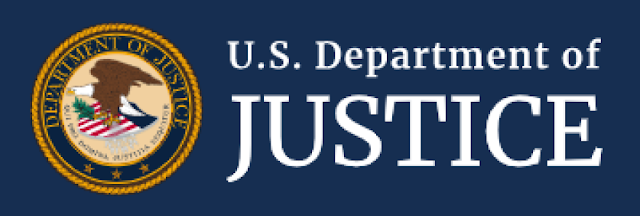Weaponizing the Department of Justice
The Department of Justice (DOJ) stands as a cornerstone of American democracy, entrusted with the impartial enforcement of laws and the pursuit of justice. Its effectiveness and legitimacy, however, are inextricably linked to its perceived independence from political influence. When the DOJ is viewed as a tool for partisan ends, rather than a neutral arbiter of the law, the consequences can be profound and far-reaching, undermining the very foundations of the rule of law and eroding public trust.
One of the primary dangers of a politicized DOJ lies in the potential for selective prosecution or investigation. If prosecutorial decisions are guided by political loyalty or opposition, rather than by the strength of evidence and legal merit, the concept of equal justice under the law becomes a hollow promise. This can manifest in various ways, from pursuing cases against political opponents with excessive zeal while overlooking similar conduct by allies, to dismissing legitimate investigations or charges for politically expedient reasons. Such actions not only distort the application of justice but also create a two-tiered system where legal outcomes depend on political affiliation. Recent allegations, for instance, have pointed to instances where defense lawyers or even Justice Department officials sought reviews for possible dismissal of cases, citing arguments of "weaponization," sometimes leading to internal pushback from career prosecutors who review the evidence. Similarly, there have been concerns raised about the dismissal of certain criminal corruption charges potentially influenced by political considerations.
Furthermore, the weaponization of the DOJ can lead to a significant erosion of public confidence in governmental institutions. When the public perceives that the justice system is being used for political vendettas or to shield favored individuals, faith in the fairness and integrity of the entire system diminishes. This distrust can foster cynicism, discourage civic participation, and even contribute to social unrest. The judiciary, which historically has enjoyed a higher level of public trust compared to the legislative and executive branches, also risks its standing if its independence is seen as compromised by politically motivated actions originating from the executive branch.
Historically, allegations of politicization within the DOJ are not entirely new. There have been past instances, such as concerns regarding the dismissal of U.S. attorneys or allegations of politically motivated hiring practices within certain divisions. More recently, the creation of specific working groups to identify "politically motivated cases" and reports of senior Justice Department officials reviewing prosecutions based on claims of "weaponization" highlight ongoing tensions. Critics argue that such internal mechanisms, while ostensibly aimed at ensuring fairness, can themselves become instruments of political pressure if not managed with absolute impartiality. The marginalization of career professionals and the perception that decisions are being driven by political considerations, rather than the knowledge and expertise of long-serving staff, further fuel these concerns.
The checks and balances inherent in the American system of government are designed to prevent the concentration of power and safeguard against such abuses. The legislative branch, through its oversight powers and the ability to confirm or reject presidential nominations, plays a crucial role in scrutinizing the DOJ's actions. The judicial branch, by interpreting laws and ruling on their constitutionality, acts as an independent arbiter, although its own legitimacy relies heavily on public perception of its impartiality. However, these checks can be strained when political polarization is high, and the lines between legitimate policy shifts and politically motivated interventions become blurred.
Ultimately, the danger of weaponizing the Department of Justice is that it transforms a vital institution of law enforcement into a political instrument. This subversion of its core mission not only perverts justice for individuals but also inflicts lasting damage on the credibility of the legal system, the stability of democratic governance, and the fundamental principle that no one is above the law. Maintaining a fiercely independent and non-partisan Department of Justice is not merely a matter of good governance; it is essential for the enduring health and integrity of a democratic society.





